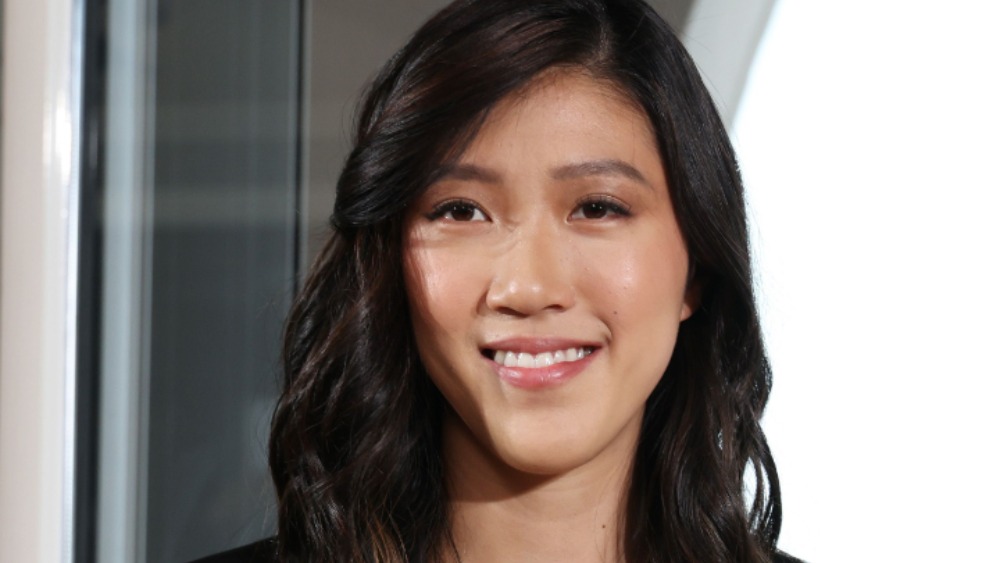Variety Print Plus Subscriber
Variety Print Plus Subscriber
Variety Print Plus Subscriber
Variety Print Plus Subscriber
Variety Print Plus Subscriber
By Manori Ravindran
International Editor
Digital artist and NFT virtuoso Emily Yang joined Variety and Kering at the Cannes Film Festival for an inspiring Women In Motion conversation on Friday, just ahead of the final day of the festival’s 75th edition.
In just over two years, Yang went from being on unemployment insurance to becoming a rockstar in the NFT-driven digital art space under the handle @pplpleasr. Yang, who designed the April cover of Vogue magazine’s Taiwan edition, has used the proceeds of the sales of her artwork to set up the Stand With Asians Community Fund as well as an NFT collective for charitable work.
Starting her career as a visual effects artist, Yang worked on studio tentpoles like “Batman v. Superman” and “Wonder Woman,” and in 2020, had a job offer from Apple for a digital artist role. When the pandemic struck, however, the opportunity went away, leaving Yang jobless for over a year.
blogherads
.defineSlot( ‘medrec’, ‘gpt-variety-article-mid-article-uid0’ )
.setTargeting( ‘pos’, [“mid-article1″,”mid-articleX”,”mid”,”mid-article”] )
.setSubAdUnitPath(“ros/mid-article”)
.addSize([[300,250],[2,2],[300,251],[620,350],[2,4],[4,2]])
;
});
“It was definitely not an easy time,” reflects Yang. “Looking back now, I obviously see it as a blessing in disguise, but at the time it was particularly stressful because I was living in New York and worried about paying rent. I was actually collecting unemployment insurance because I had lost my job and I think what kept me sane during that time was I started an Instagram account and that’s how ‘pplpleasr’ was born.”
Yang — who was doing “endless” job applications — wanted an outlet and building out her ‘pplpleasr’ brand provided a respite from the job hunt. “I started making artwork for myself for the very first time, because before I had always been making artwork for other big Hollywood studios. It was really to make myself feel like I was doing something productive and I wasn’t putting my life to waste.”

Around that time, Yang began looking into other revenue streams and was drawn into DeFi (decentralized finance), which is a sub-sector of cryptocurrency. “I saw a way to marry my own skill set with crypto knowledge and make myself valuable and useful in the space out of purely a need to create some kind of income for myself. I started using my medium and making all these animations to promote DeFi protocols. Through word of mouth, they all started hitting me up and that’s when I was like, ‘This could be a real job.’”
Yet Yang acknowledges that there are still plenty of misconceptions and misunderstandings about the crypto world.
“People see it as super ridiculous or over the top, especially as the media focus is a lot on the numbers [big sales deals] that are generated,” says Yang. “For me, I obviously found the technology very interesting, about being able to generate unchained royalties for artists, beyond the many, many things that NFTs enable for people. But it’s really weird because I feel like as an NFT artist, your entire worth and self-worth is put online. Everyone is judging you by the numbers that you generate.”
Overall, Yang finds the space empowering for women, and points out that the crypto community “is not a sexist one.”
“This is pretty obvious by how many anonymous influencer accounts there are where people are just represented by a picture of a monkey online or something,” says Yang. “They don’t know who you are or what your background is — it doesn’t really matter — it’s just what kind of thoughts and ideas you’re putting out into the space.”
blogherads
.defineSlot( ‘medrec’, ‘gpt-dsk-tab-mid-article2-uid1’ )
.setTargeting( ‘pos’, [“mid”,”mid-article2″,”mid-articleX”] )
.setSubAdUnitPath(“ros/mid-article2”)
.addSize([[300,250],[300,251],[620,350],[2,4],[4,2]])
;
});
There is a gender disparity, says Yang, but that’s more a spillover from the tech and finance industries being more male-dominated. “It’s basically a convergence of all these industries that previously had a large gender imbalance,” she says.
“But my job is to hopefully inspire more women to join this space,” adds Yang. “And you are seeing this happen more and more, but my own success is also a result of people not [discriminating by gender] because they just realized the work I was doing was cool, and less about who I am or what I look like. In that regard, I feel really lucky and I hope that my story can inspire other women to join in my footsteps and build in web3 as well.”
The Business of Entertainment


